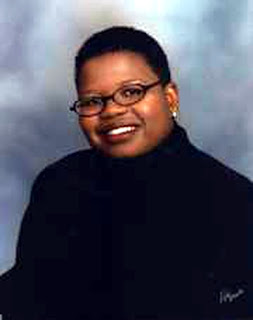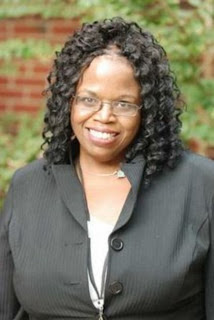WASHINGTON, Feb. 18, 2010 - U.S. Attorney General Eric Holder and Agriculture Secretary Tom Vilsack today announced the successful resolution of the longstanding litigation known as Pigford II. The settlement agreement reached today, which is contingent on appropriation by Congress, will provide a total of $1.25 billion to African American farmers who alleged that they suffered racial discrimination in USDA farm loan programs. The settlement sets up a non-judicial claims process through which individual farmers may demonstrate their entitlement to cash damages awards and debt relief.
Below is a statement from Agriculture Secretary Tom Vilsack: AUDIO: Media Briefing
"USDA has made it a top priority to ensure all farmers are treated fairly and equally. We have worked hard to address USDA's checkered past so we can get to the business of helping farmers succeed. The agreement reached today is an important milestone in putting these discriminatory claims behind us for good and in achieving finality for this group of farmers with longstanding grievances.
"Because this Administration firmly believed that a full and final class-wide settlement was possible, the Administration requested $1.15 billion in the 2010 budget, on top of the $100 million already provided by Congress, to facilitate a settlement. I now urge Congress to provide the funding necessary to ensure that that these farmers and USDA can close this sad chapter and move on.
 | "As I testified before Congress during my confirmation hearings last year, the USDA under the Obama Administration has made civil rights a top priority, which is why we are working to implement a comprehensive program to take definitive action to move USDA into a new era as a model employer and premier service provider."
Below is a statement from Attorney General Eric Holder:
"Bringing this litigation to a close has been a priority for this Administration. With the settlement announced today, USDA and the African American farmers who brought this litigation can move on to focus on their future. |
The plaintiffs can move forward and have their claims heard - with the federal government standing not as an adversary, but as a partner."
In 1999, the USDA entered into a consent agreement with black farmers in which the agency agreed to pay farmers for past discrimination in lending and other USDA programs. Thousands of claims have been adjudicated, but thousands of other claims were not considered on their merits because the affected farmers submitted their claims after the settlement claims deadline.
To address the remaining claims, Congress provided these farmers another avenue for restitution in the 2008 Farm Bill by providing a right to file a claim in federal court. The total amount offered by the federal government in the agreement announced today, $1.25 billion, includes the $100 million appropriated by Congress in Section 14012 of the Farm Bill.
Last May, President Obama announced his plans to include settlement funds for black farmers in the FY 2010 budget to bring closure to their long-standing litigation against the U.S. Department of Agriculture.
The settlement is contingent on Congress appropriating the $1.15 billion that the President requested. Following the appropriation, class members may pursue their individual claims through a non-judicial claims process in front of a neutral arbitrator. Claimants who establish their credit-related claims will be entitled to receive up to $50,000 and debt relief. A separate track may provide actual damages of up to $250,000 through a more rigorous process. The actual value of awards may be reduced based on the total amount of funds made available and the number of successful claims.
A moratorium on foreclosures of most claimants' farms will be in place until after claimants have gone through the claims process or the Secretary is notified that a claim has been denied.The claims process agreed to by the parties may provide payments to successful claimants beginning in the middle fo 2011.
Ensuring equitable treatment of all USDA employees and clients is a top priority for Secretary Vilsack. He has issued a clear policy and a comprehensive plan to improve USDA's record on Civil Rights and made it clear to all employees that discrimination of any form will not be tolerated at USDA. Some of the actions taken to transform USDA into a new era as a model employer and premier service provider include:
* USDA revamped the program civil rights complaints system to improve the complaint process. For the first time since 1997, USDA now has investigators on staff to do the field work needed to investigate complaints.
* After a competitive bidding process, USDA has hired outside, private firm to do an independent external analysis of the department's service delivery programs to identify problem areas and fixes. The firm will consider programs at USDA to identify barriers to equal and fair access for all USDA customers.
* In April, USDA suspended all foreclosures in the Farm Service Agency's loan program for 90 days to provide an opportunity to review loans that could have been related to discriminatory conduct.
* USDA's Office of the Assistant Secretary for Civil Rights has initiated a series of unprecedented civil rights trainings for USDA field leadership teams and required trainings for all political appointees and senior departmental leadership.
* To try and resolve internal disputes and conflicts early and to enhance the use of alternative dispute resolution at USDA, the department is also establishing a congressionally mandated Ombudsman office to improve dispute resolution efforts. #
USDA is an equal opportunity provider, employer and lender. To file a complaint of discrimination, write: USDA, Director, Office of Civil Rights, 1400 Independence Avenue, SW, Washington, DC 20250-9410 or call (800) 795-3272(voice), or (202) 720-6382 (TDD).
Release No. 0072.10 Contact: USDA Office of Communications. (202)720-4623 U.S. Dept of Justice Office of Communications. (202) 514-2007

































